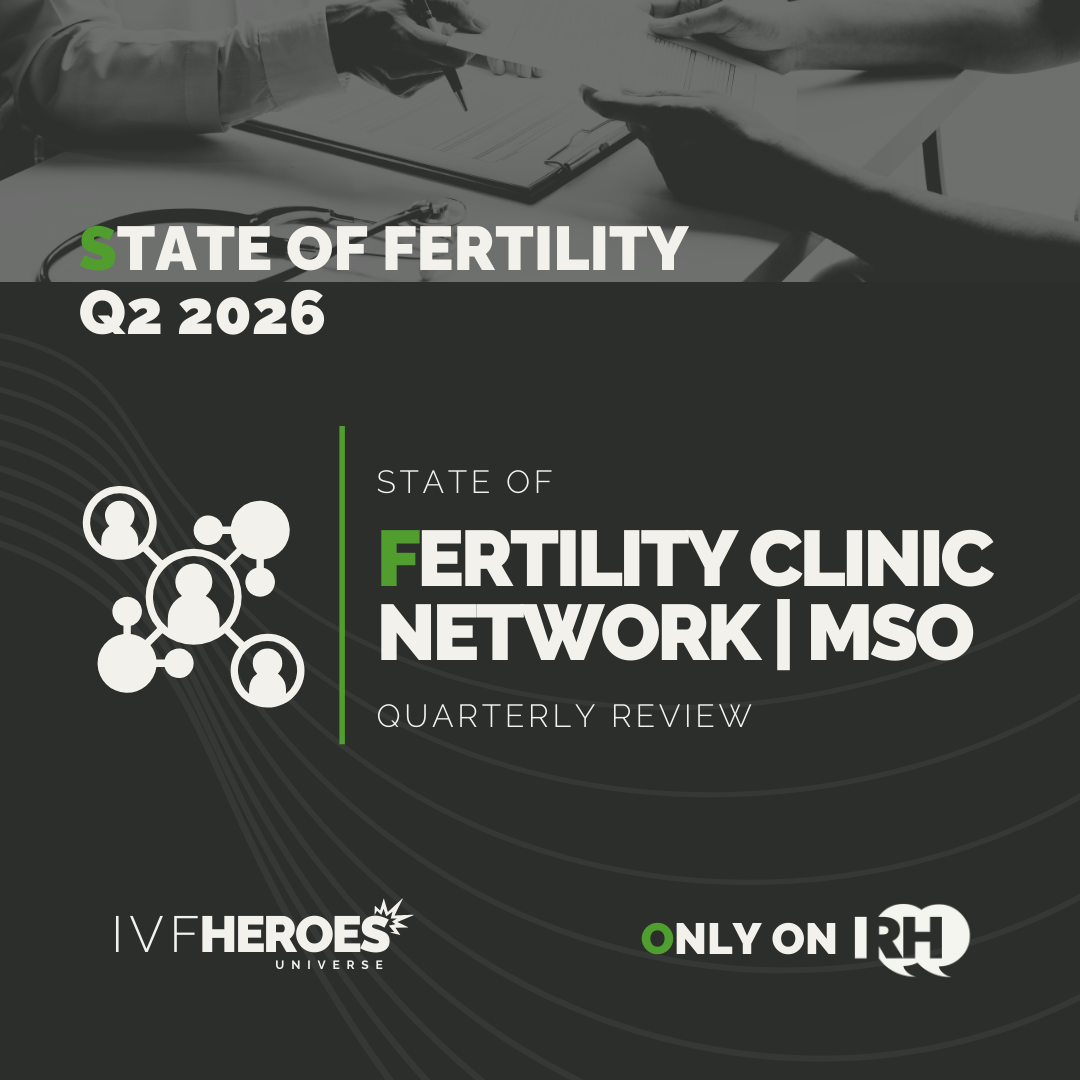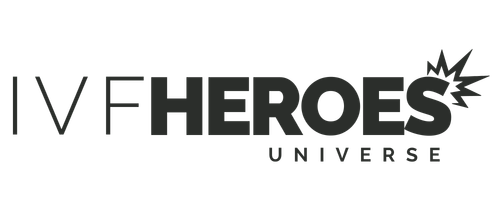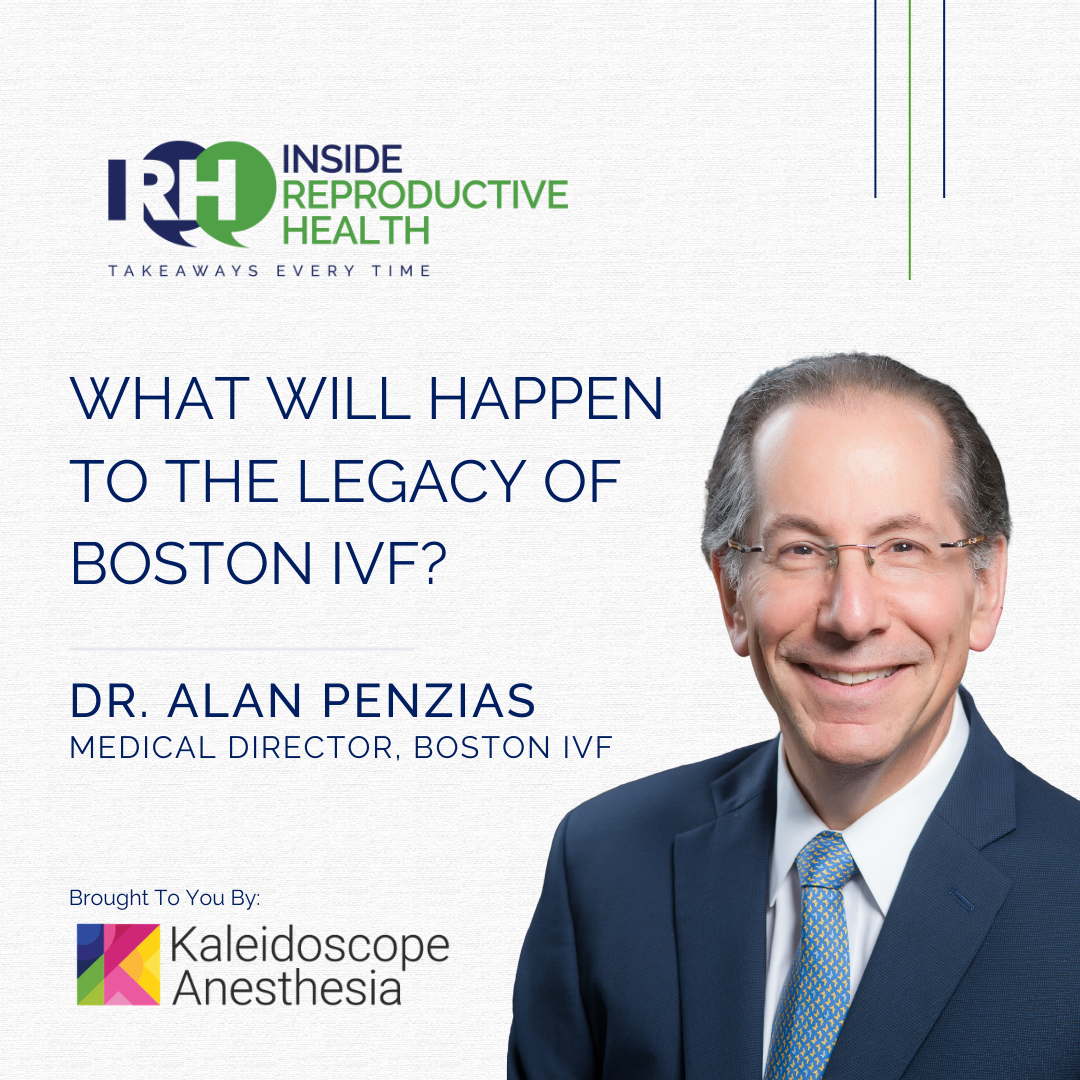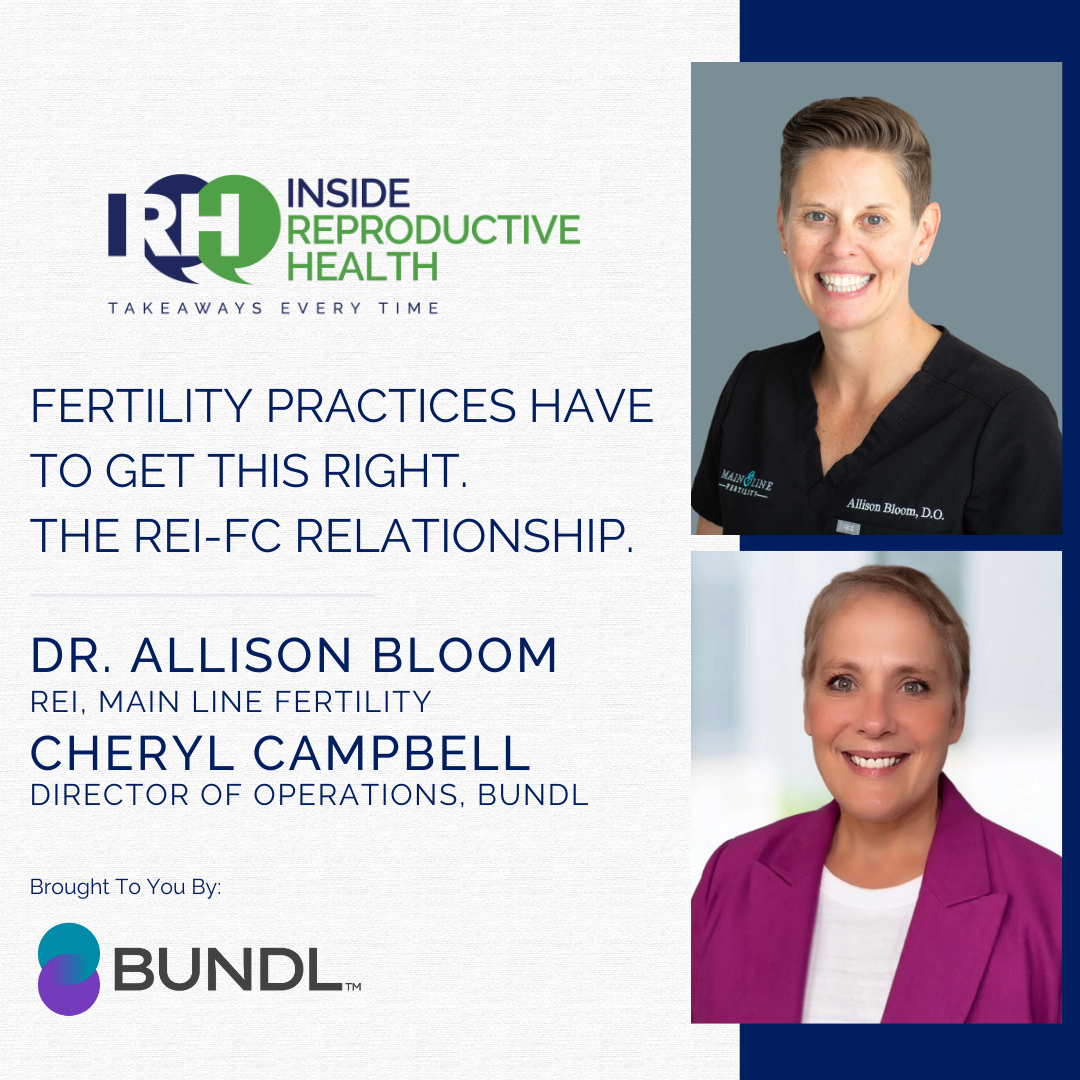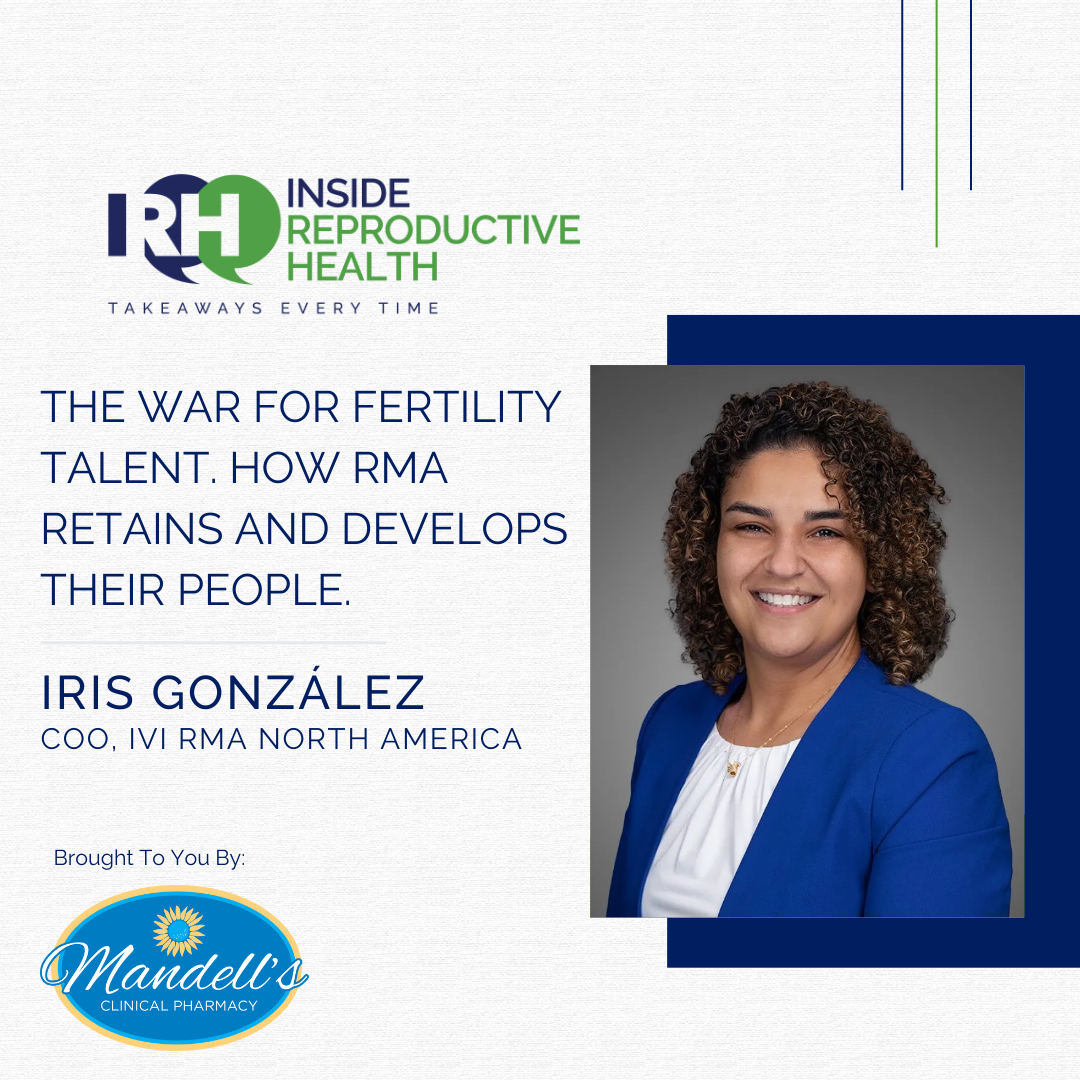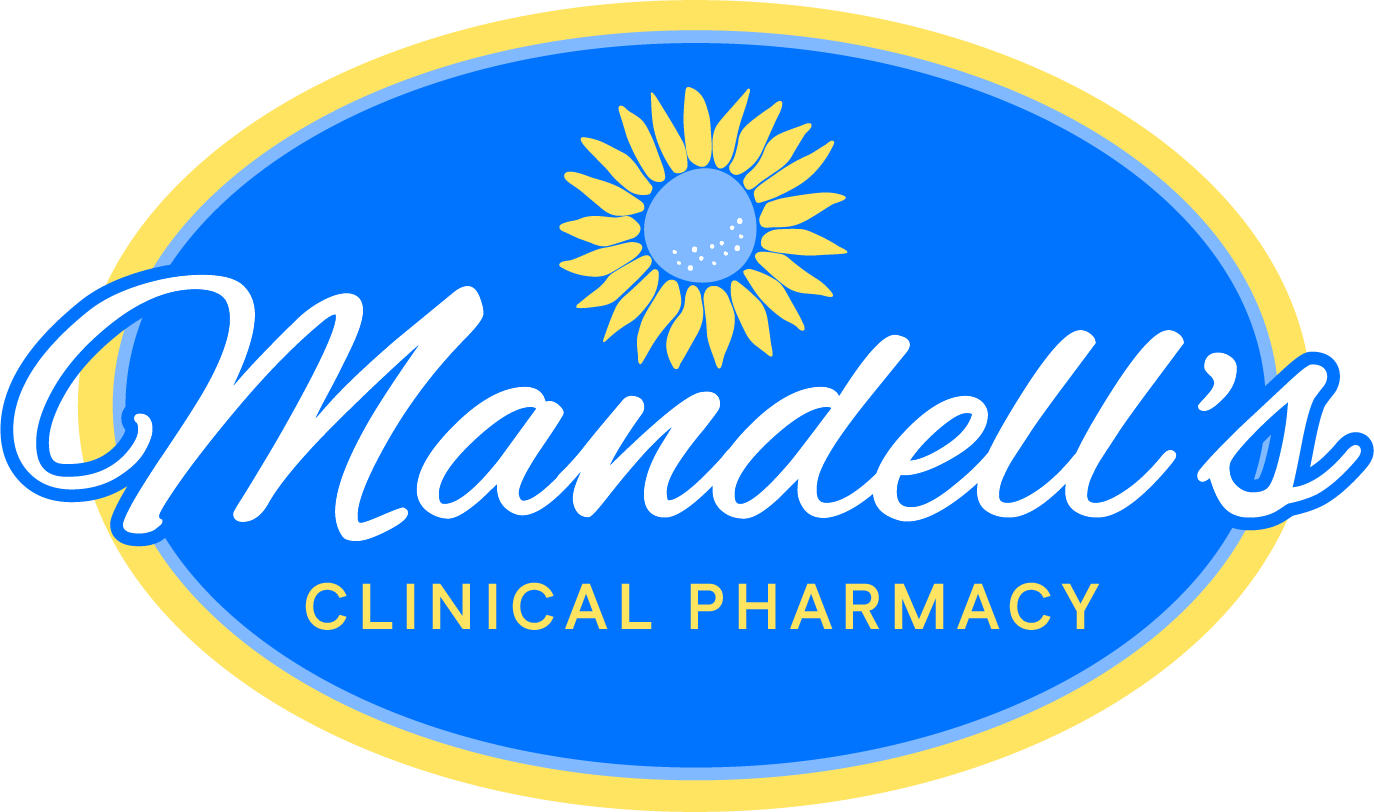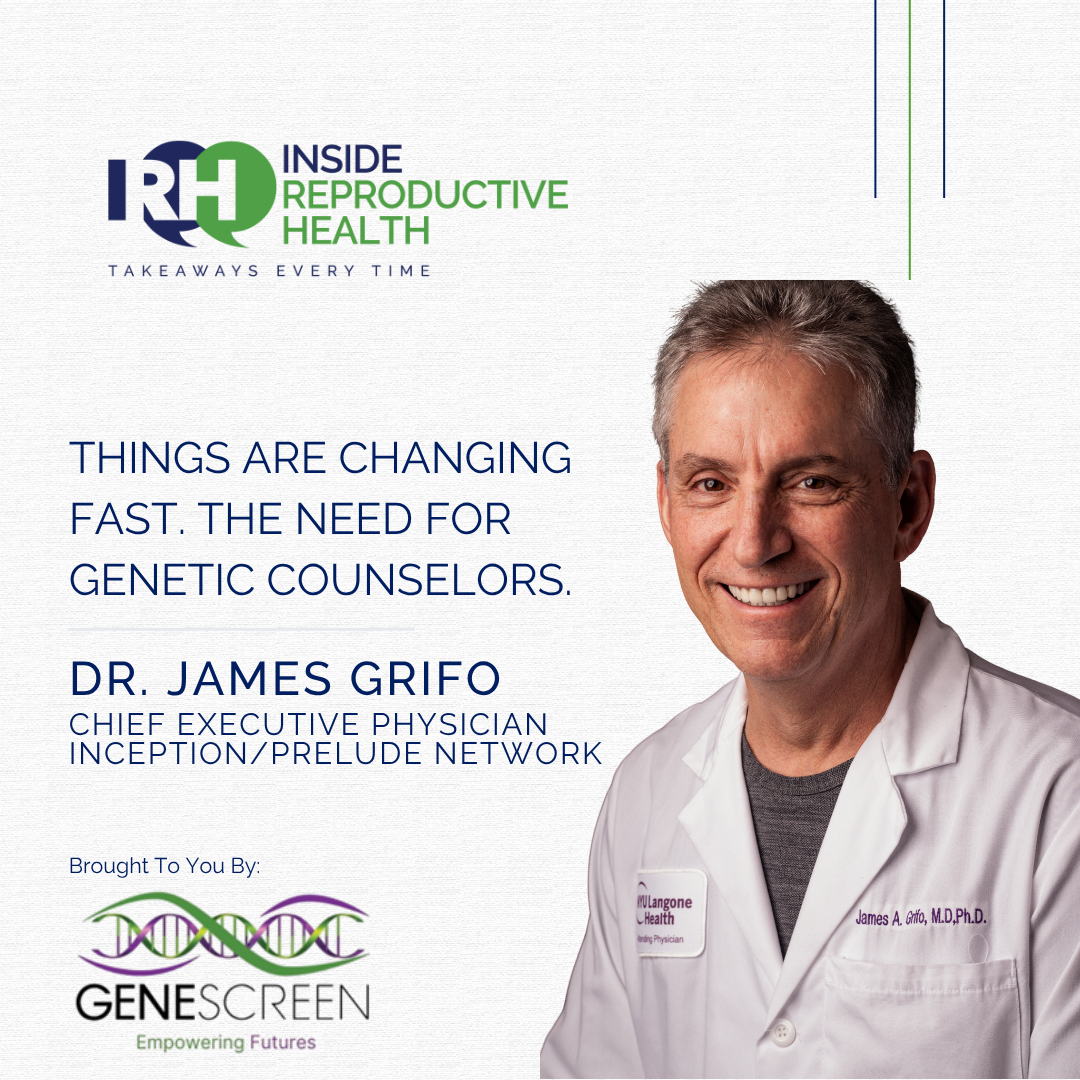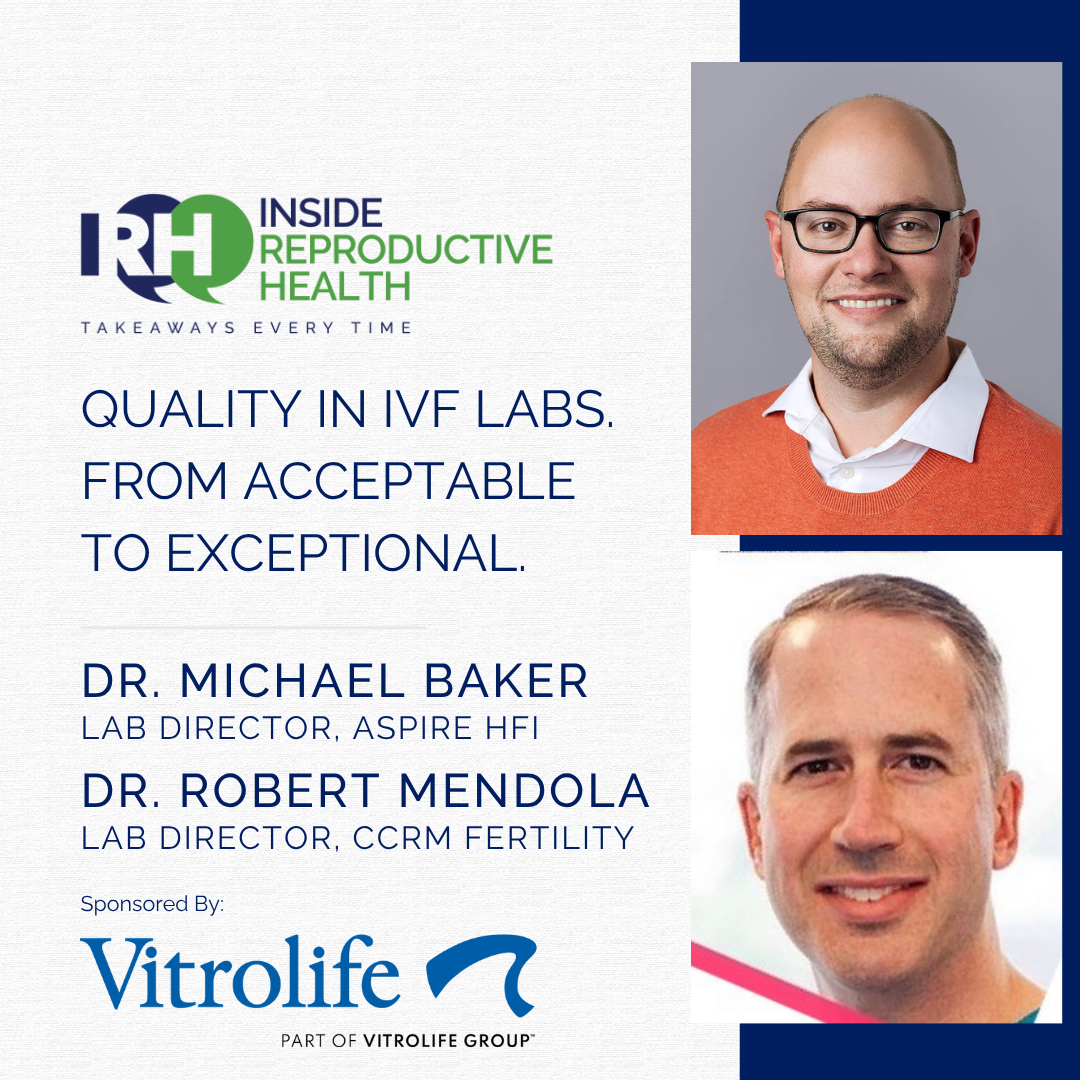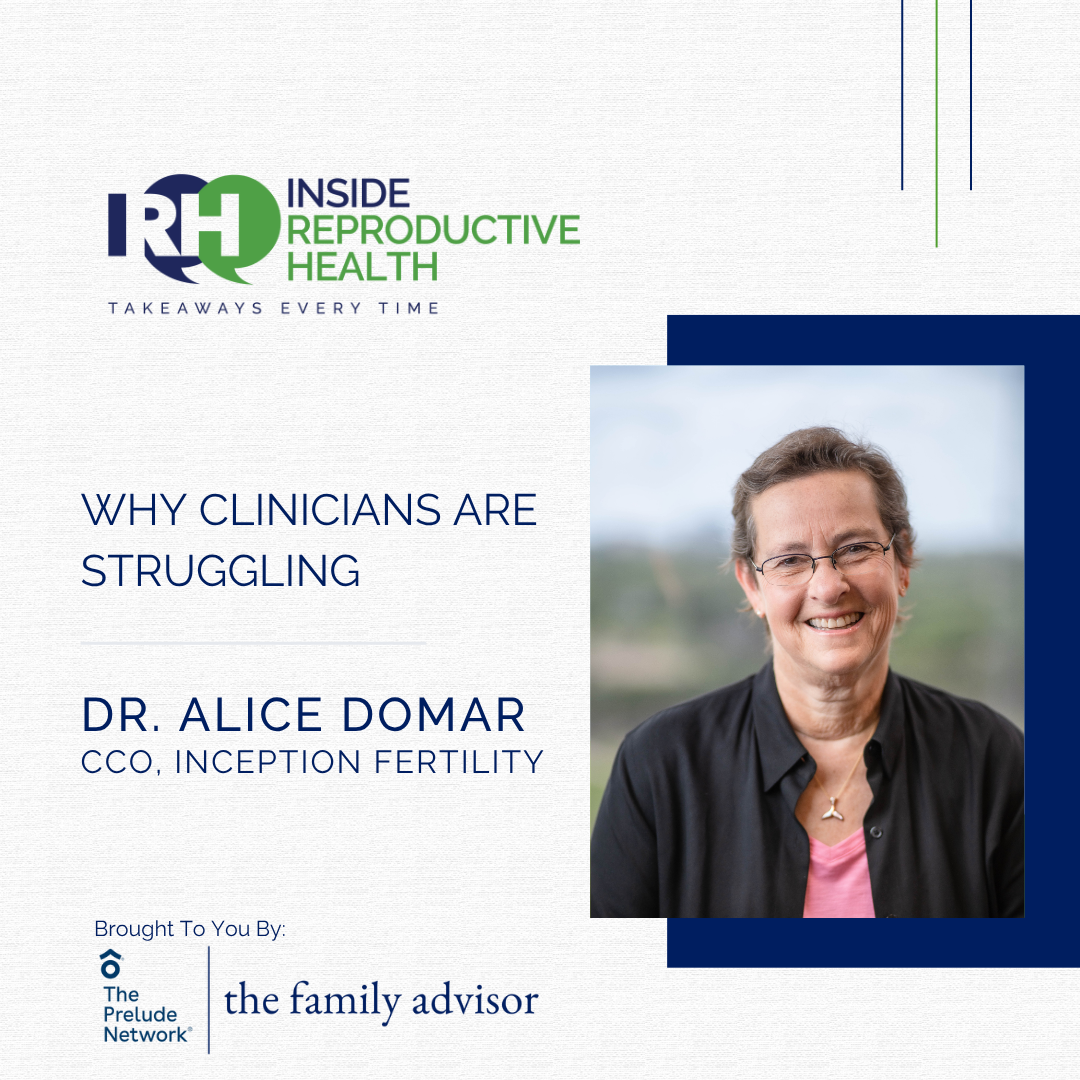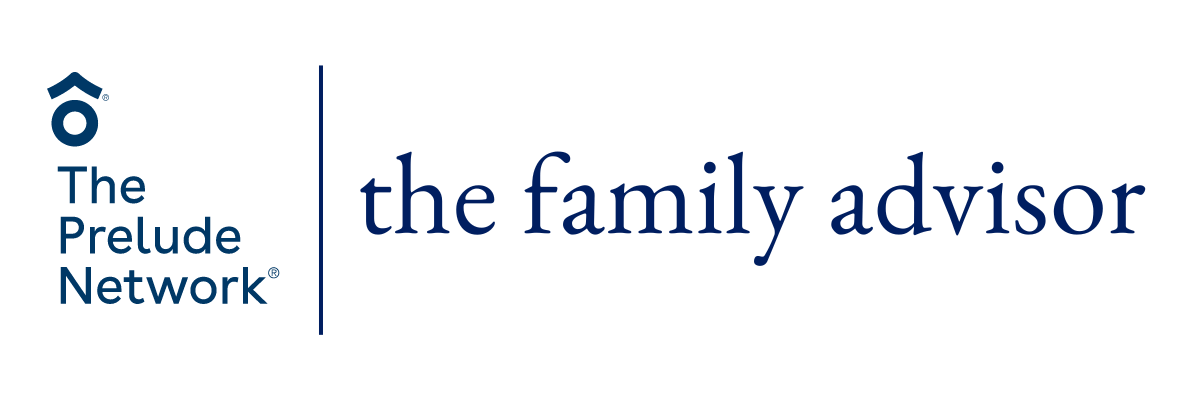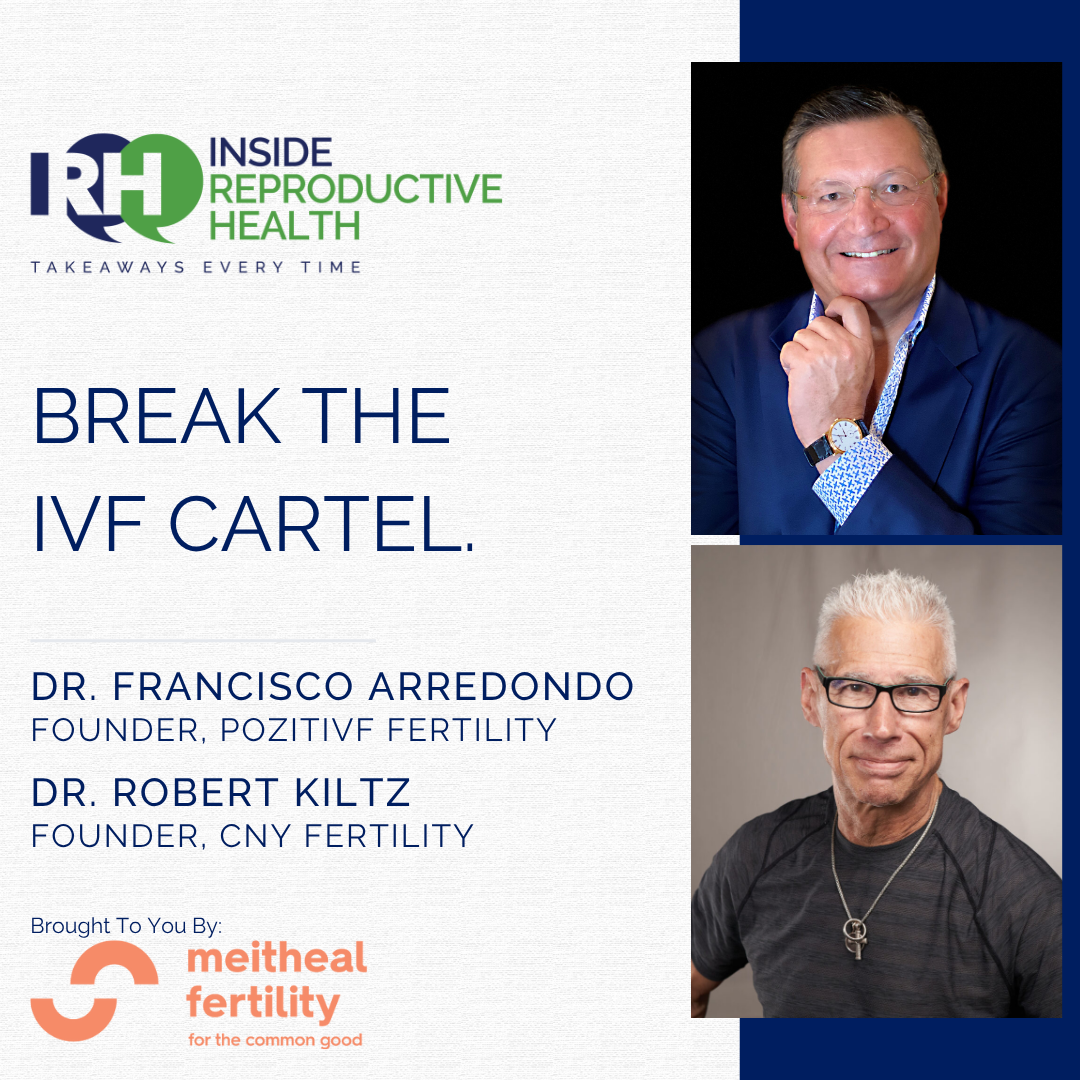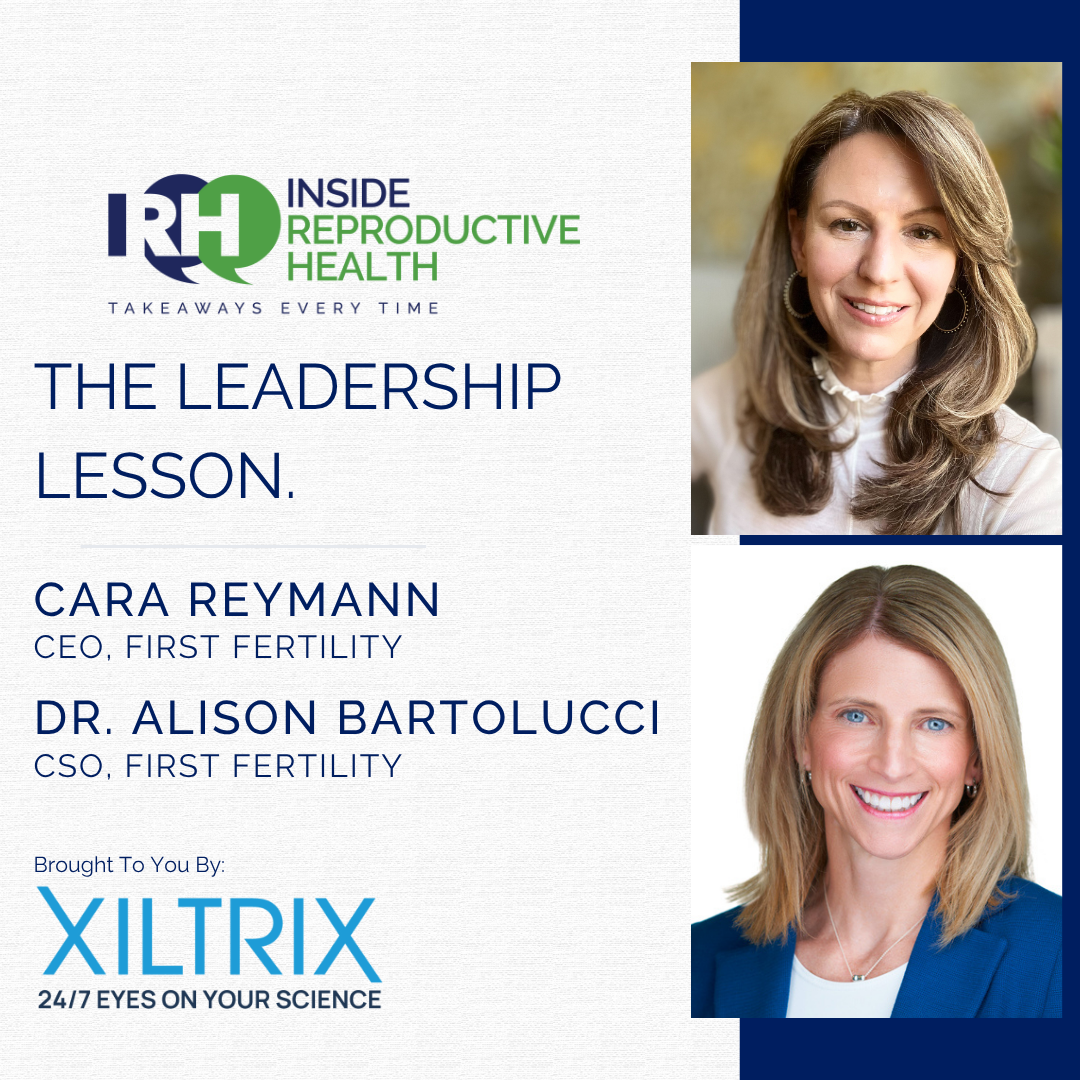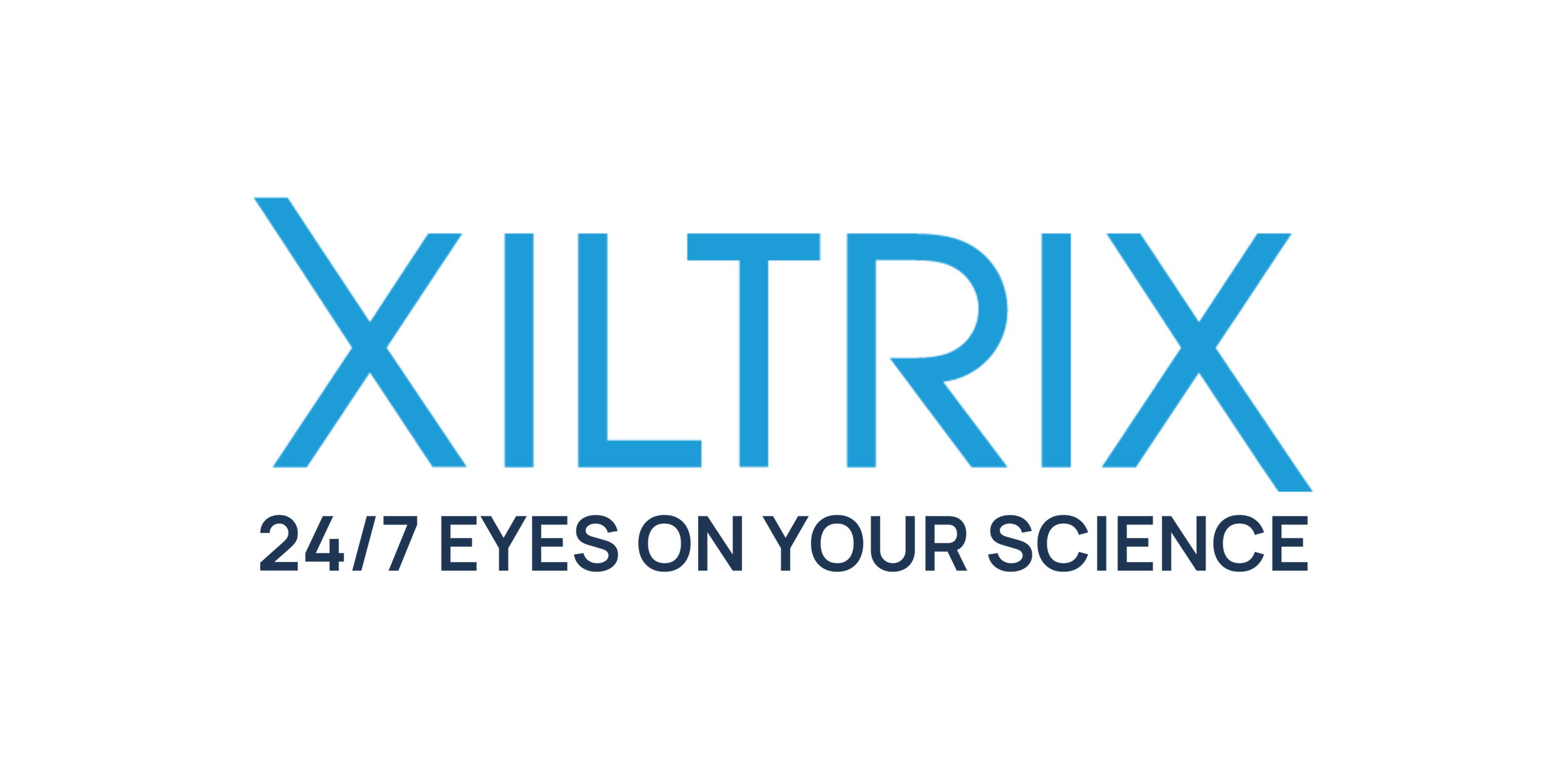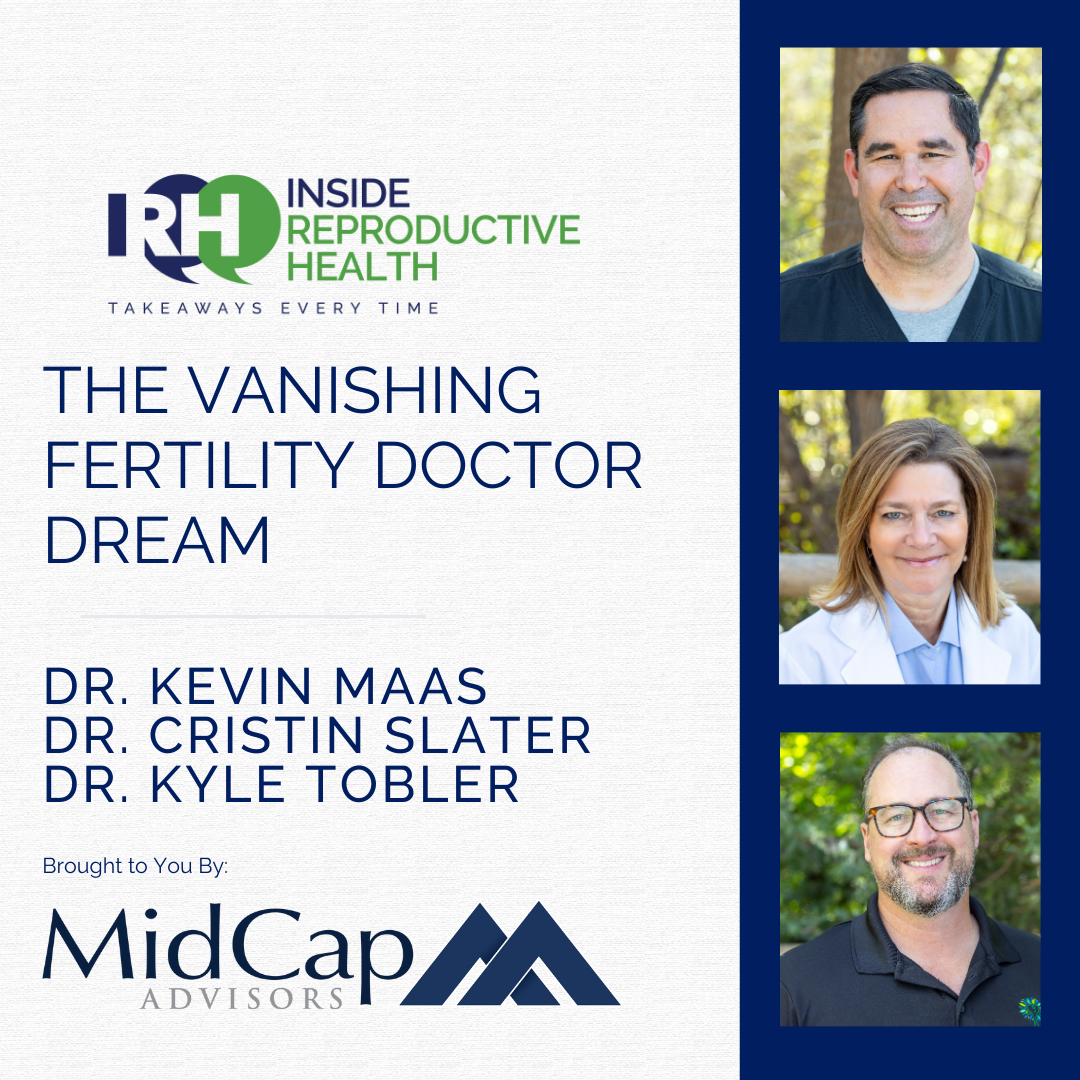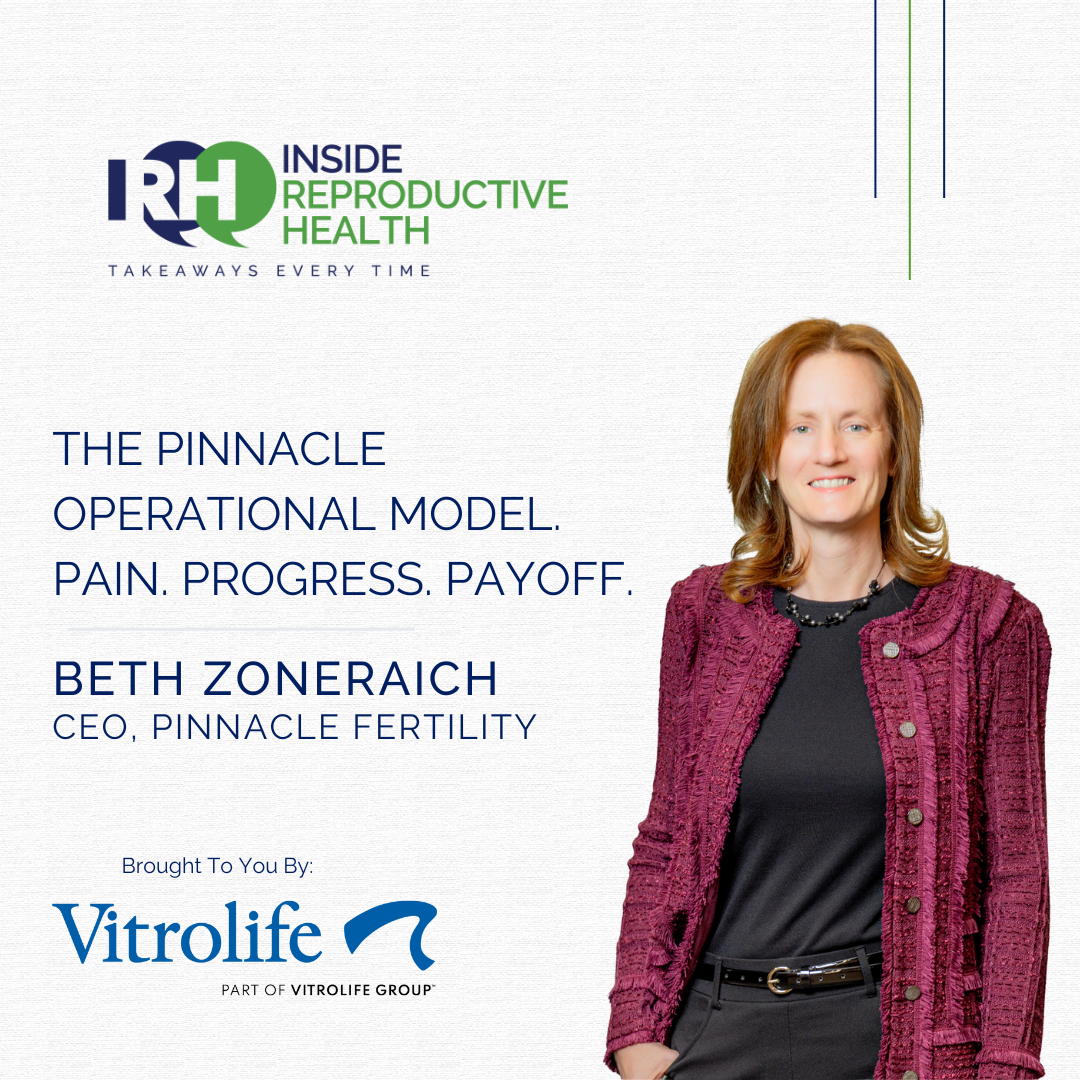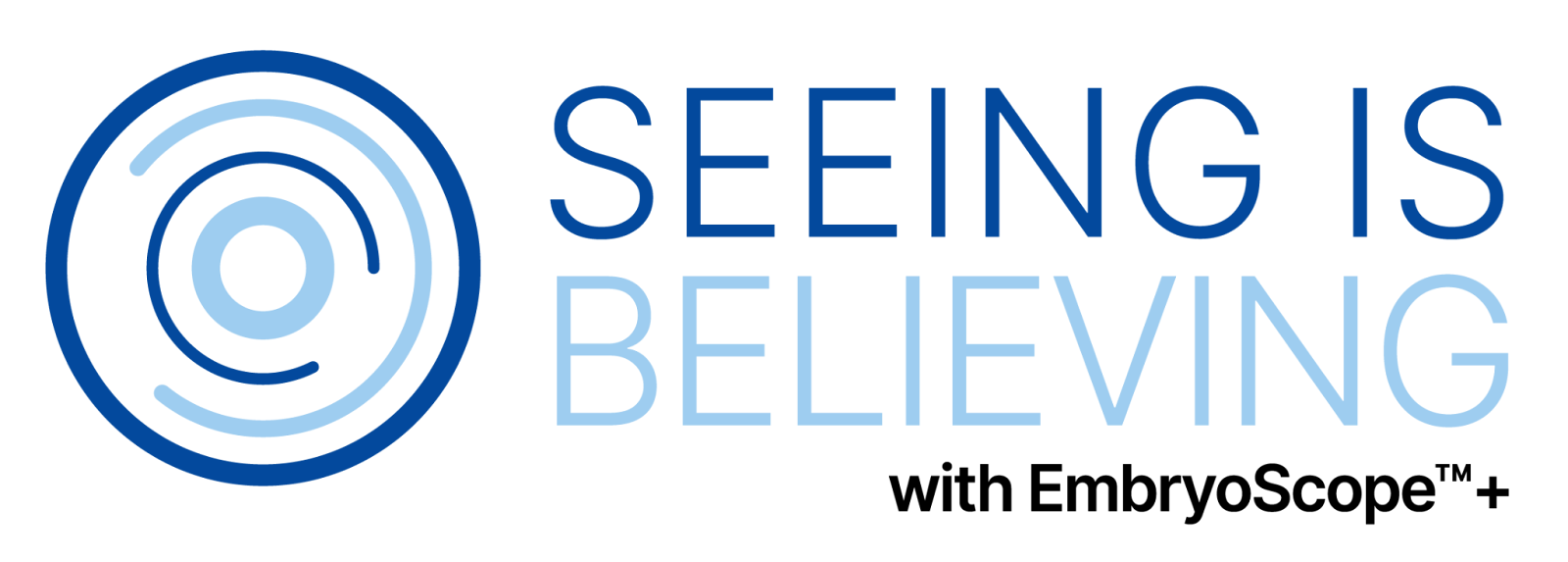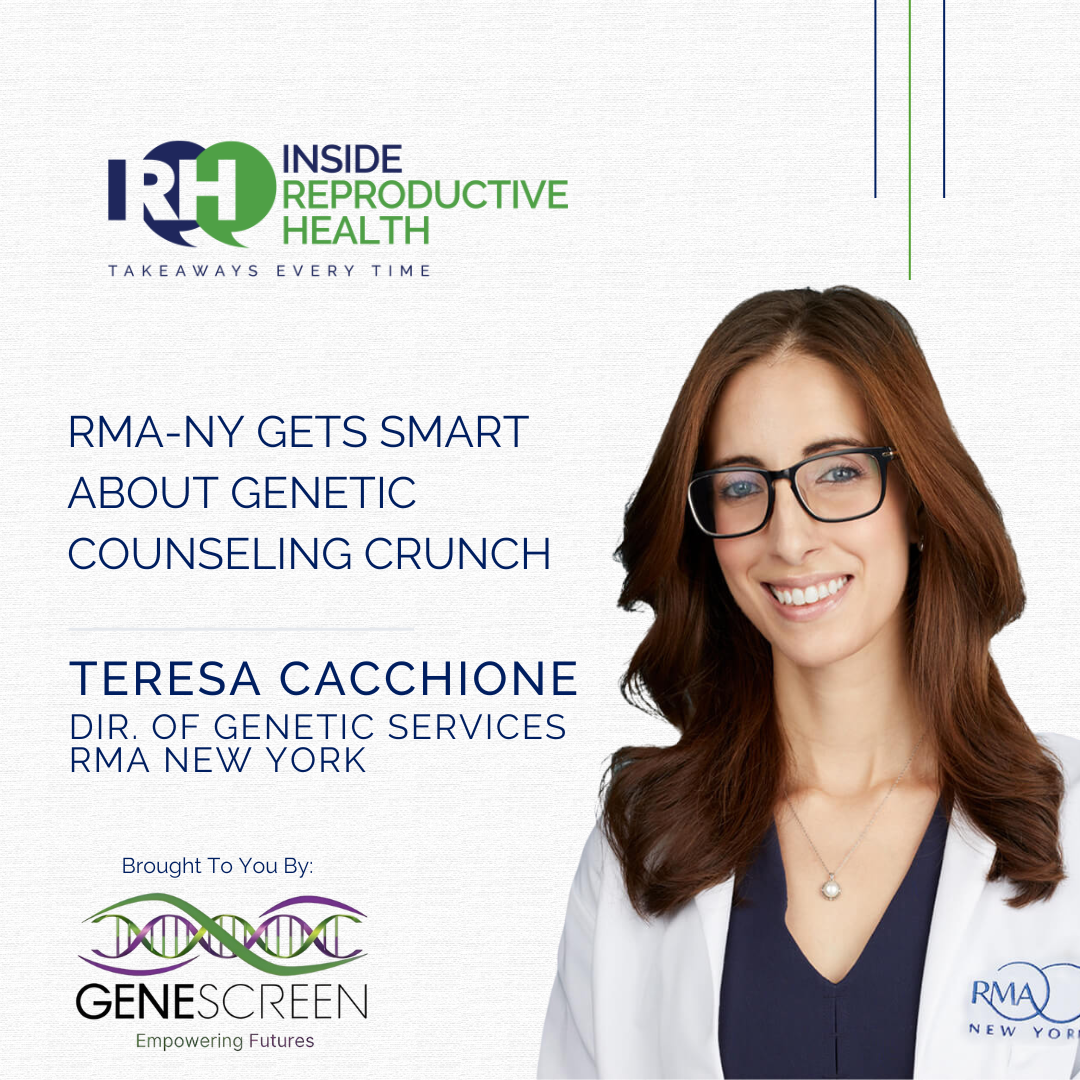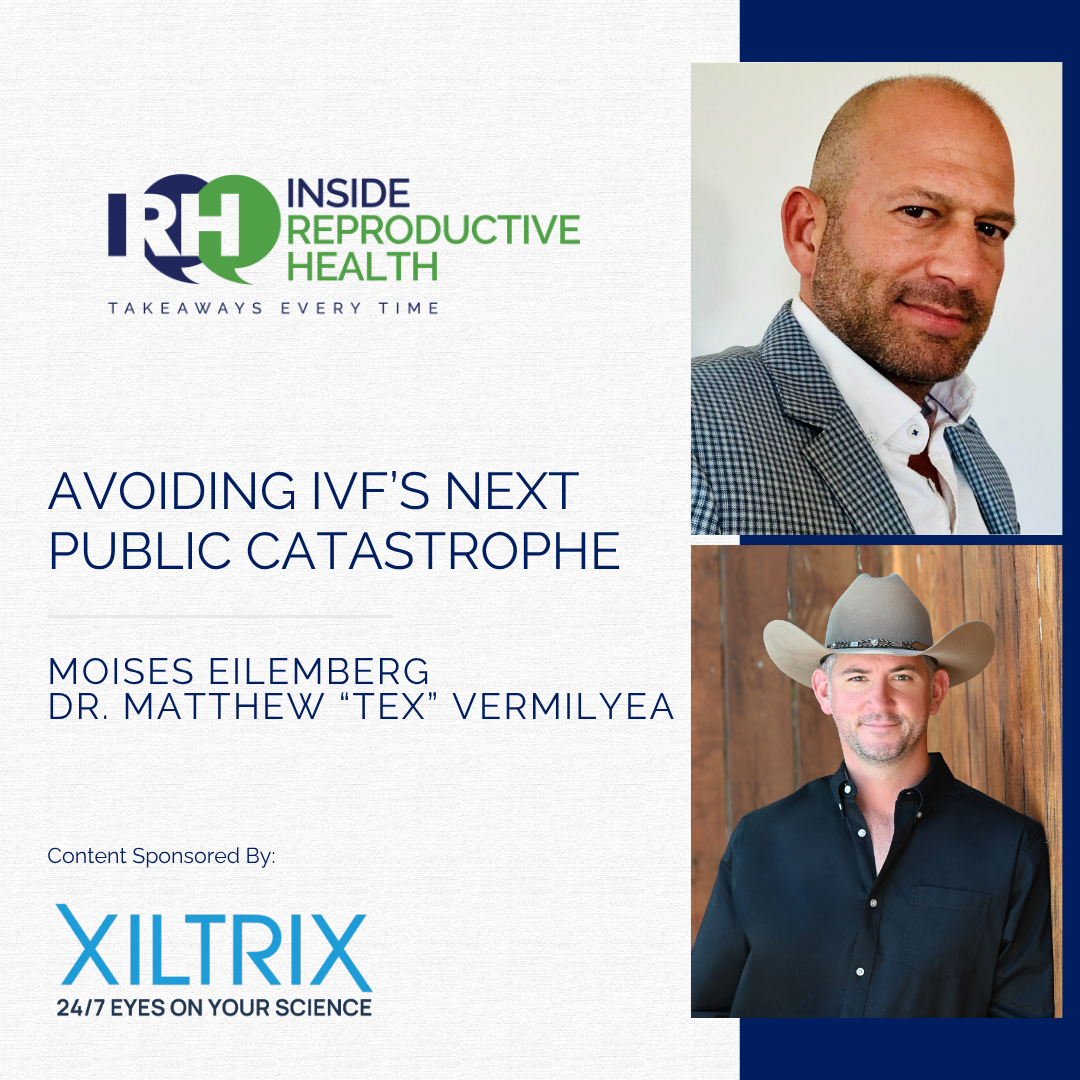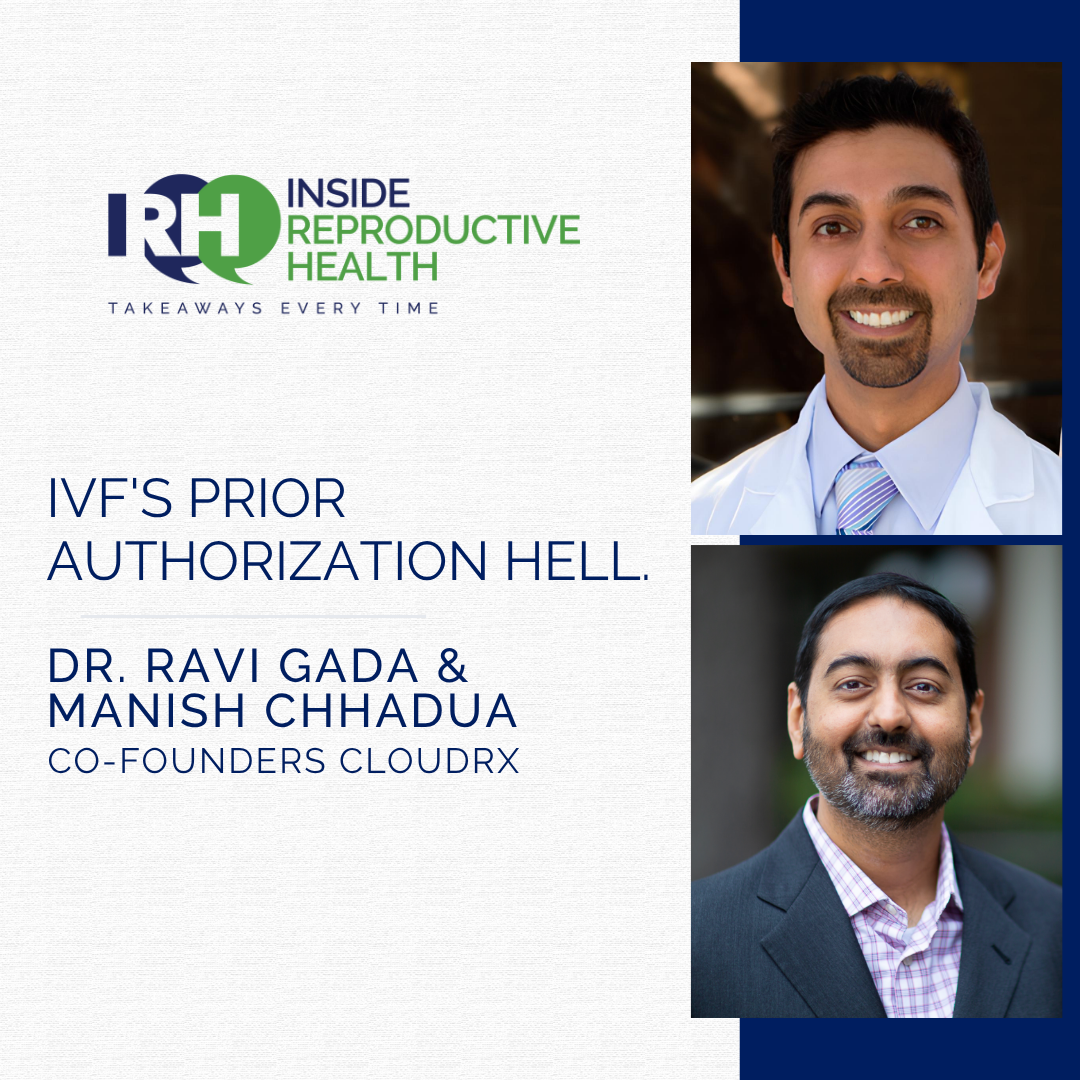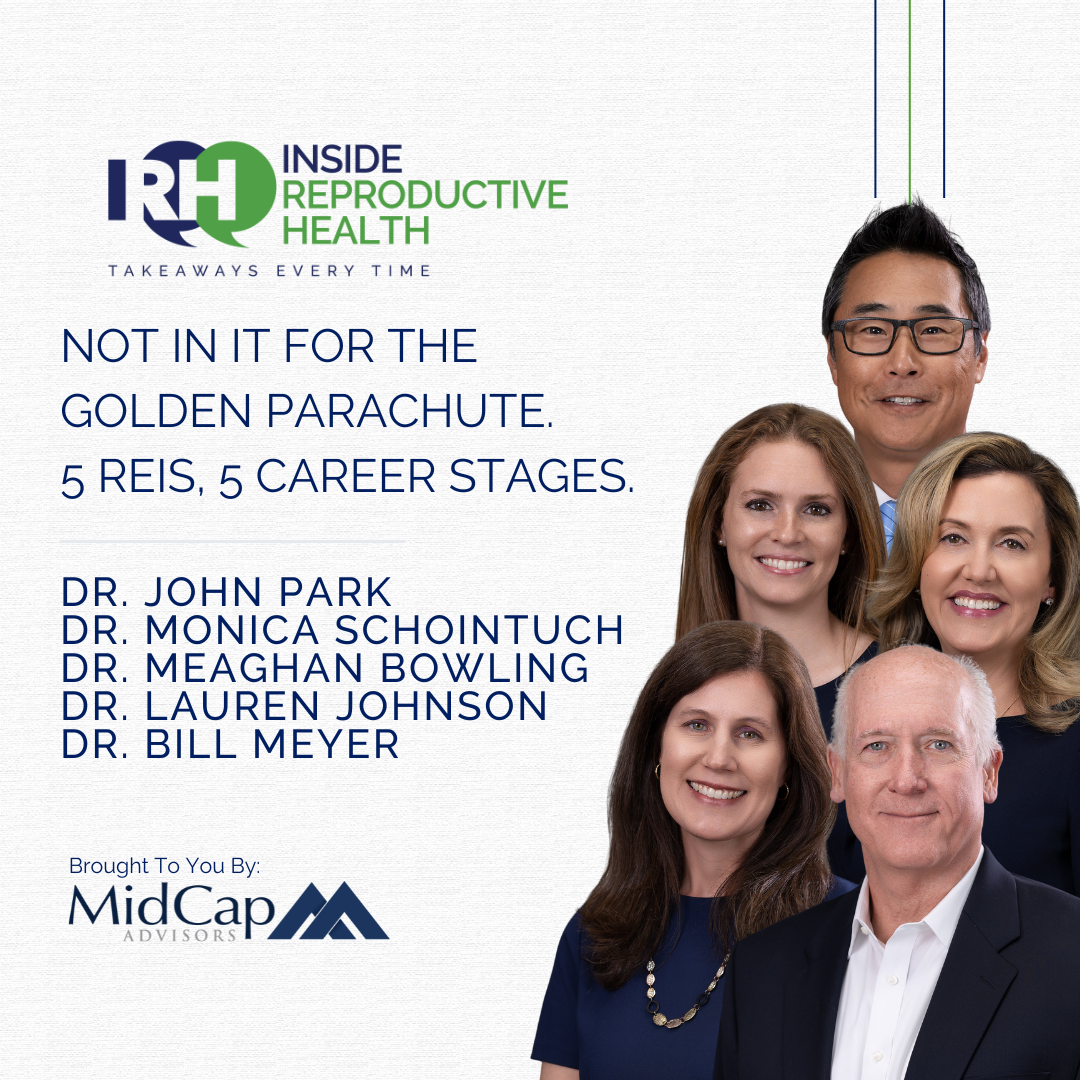Today’s Advertiser helped make the production and delivery of this episode possible. But the themes expressed by the guests do not necessarily reflect the views of Inside Reproductive Health, nor of the Advertiser. The Advertiser does not have editorial control over the content of this episode, nor does the Advertiser's sponsorship constitute an endorsement of the guest or their organization. The guest's appearance is not an endorsement of the Advertiser.
For more than a decade, the debate around PGT has felt like the same arguments, the same uncertainty, and little change in day-to-day clinical decision-making.
So what’s different now?
Joining the conversation are two REIs, Dr. Deirdre Conway of Utah Fertility Center and Dr. Meera Shah of Nova IVF. Together they examine how recent events, emerging data, and evolving lab practices are reshaping how physicians think about PGT.
They discuss:
What has changed since the late-2024 class action lawsuit against PGT labs
How practices and networks are evaluating PGT lab partnerships today
Why IVY Fertility has not yet selected a single PGT lab
What additional evidence clinicians want to see around PGT-A and PGT-G
Which PGT lab stood out to Dr. Conway (And the story behind her first case)
This is a grounded, clinician-led conversation about evidence, accountability, and what it would actually take for the PGT debate to move forward.
The New Standard of Care in IVF
Juniper Genomics’ PGT-G for “Genomics” delivers deeper genetic insight beyond standard PGT.
Built for high-performance IVF clinics.
Scale seamlessly without disrupting workflow.
See how leading clinics are adopting the next generation of PGT.
Start a conversation with our CEO, Jeremy Grushcow, PhD.
-
Griffin Jones (00:03.941)
Dr. Conway, Deirdre, Dr. Shah, Meera, thank you both for joining me for a technical difficulty free episode of Inside Reproductive Health.
Deirdre Conway (00:15.192)
Thank you.
Dr. Meera Shah (00:15.22)
Pleasure to be here, Griffin. Thank you.
Griffin Jones (00:18.125)
It seems to me as a lay person, not as a clinician who's looked at the literature at all, that the debate around PGT has been the same for the 10 or 12 years that I've been in the field. How much of it is the same versus how much has changed?
Deirdre Conway (00:39.34)
I mean, I would say.
I can speak from experience a little bit. was thinking back to my fellowship days at UCLA, and we were having one of our many feisty journal clubs that involved this exact topic. And this was, I think it was about 2010 or 2011. And it was just the same conversation as to whether PGT should even be used and for whom, and does it even really move the needle? I mean, this was back in, this was actually in the fish days, like where people were using very basic technology.
to screen the number of chromosomes in the embryos. And there was so much controversy about it. And I will never forget in this big room full of a mixture of private practice doctors and academic physicians and all of these fellows, this embryologist sitting there that was one of the senior embryologists in the lab that we used at UCLA. She said, in my heart of hearts, I know PGT is the future of IVF. And that comment just raised for...
for years just you know so much controversy and everyone is up in arms in this journal club because it was like well where's the data right like I think that's sort of the heart of it and I think we've come a long way because obviously there's been so many iterations of different kinds of technology to screen the chromosomes in the embryos and it's been broken down into the different age groups and I mean the technology is changing so quickly it's almost hard for us as fertility doctors without a genetic background to keep up with it but at the end
day I think we've learned so much and I think it's definitely very helpful and applicable for certain patient populations. You know, but it is like the circuitous conversation that we continue to have and I think it's tricky for us also because we're always trying to work within, you know, the confines of ASRM guidelines and be ethical with our patients, but there's so much consumer information out there in the world too that makes it really hard to balance, like, you know, what information do
Deirdre Conway (02:40.152)
we feel good about disseminating to our patients versus what they're getting from the consumers or just from marketing itself and trying to figure out like where is that healthy balance and with whom is it exactly perfect for.
Griffin Jones (02:52.058)
Why do you think she said that, that in her heart of hearts she just knew that PGT was the future?
Deirdre Conway (02:59.882)
I think she just...
felt like we were on the brink of something huge within our specialty. And I think she believed in it. And I think she maybe appreciated that there would be changes that would make it better and we'd learn more. like at that point, I think it was still, mean, that was right, like you said, 10 to 12 years ago, where it was like the technology, lack of better word, it kind of sucked. Like fish wasn't great. like it just was terrible technology at that point. But I think she
felt like it was like icksy, right? Like there was just this major change that was about to happen in our specialty that was going to move the needle in a really positive direction, but she couldn't exactly explain how that was gonna happen and how it was gonna shake out. So I think she believed in it, but it was like the data was still not there.
Griffin Jones (03:54.267)
So why does the debate still seem so circular, Mira? Is it because we haven't had sufficient scientific evidence mount on either side? Or is it that more or less an equal amount of scientific evidence has been piling on each side of the scale? What's going on?
Dr. Meera Shah (04:13.396)
made lot of progress in the last 10 to 15 years. mean, if you look at the utilization of PGT in all IVF cycles in 2011, it was under 5%. And now it's over 50%. And many clinics are doing all PGT cycles. So clearly there's been some compelling data that supported the use of PGT for embryo selection. And I do think that the data in certain populations is, again, compelling that it improves by birth rates and it reduces miscarriage rates and that it promotes
the single embryo transfer. I think what we've all been frustrated with is a few things. First, know, the stagnation and the success rates. I haven't really seen the needle move that much in the last five to 10 years. We still see that 40 to 50 percent of patients are going to fail a euploid transfer and that is, mean Deirdre and I can attest to the fact that those are the hardest conversations that we have. We don't have answers. Women are blaming themselves. We start going down these
diagnostic rabbit holes, we start doing empiric treatments out of desperation, right? When probably if we just transfer another embryo, they're going to have a pretty good success rate. And we know that because there's good literature now supporting that with three, two to three, you employ transfers, the cumulative life birth rate is going to be above 80 to 90%. So we know that there's really not persistent maternal factors in most cases. So I think from my perspective, you know, the frustration lies in that we've kind of stagnated
with those success rates and we haven't seen a lot of improvement. There has been some improvement in PGT platforms, which we can talk about later in the podcast, but I think, you know, some of the mistrust in PGT results and the misleading marketing that PGT companies do, I think we as clinicians have to be very transparent in telling patients that there are limitations to PGT, that, you know, a euploid embryo, I mean, PGT is a screening test. We have to be clear about that. It's not a diagnostic test. It's screening an embryo for viability, but it's not
the ultimate test. don't know whether that embryo is going to lead to a live birth until it's actually transferred. So I think with these recent class action lawsuits and a lot of now mistrust in the public about PGT resulting, there's all these new clinical trials showing that these abnormal embryos are leading to healthy babies. We have to do, the onus is on us and the PGT companies to really be very clear about what the platform offers, what its limitations are. And before we go and discard quote abnormal embryos,
Dr. Meera Shah (06:42.976)
we need to be clear to have another conversation with the patient to be sure we know, you know, what the patient understands about that. So those are some of the things that I think are ongoing in this debate. And, you know, I think the future is bright with PGT. I think we're starting to see some newer platforms that are starting to really push the envelope a little bit, looking at genomic information in a different way. And we're starting to look at lethal variants and reduced viability variants that can impact the viability of an embryo.
so that ultimately as clinicians we can better prioritize which is the best euploid embryo to transfer.
Griffin Jones (07:20.496)
This is not a rhetorical question. Again, a guy that does not have a clinical or scientific background. it is an open-ended question, even if it might not sound like it. Why doesn't the stagnation in success rates conclude the debate? Like if you've had the technology advance for the last 10 years and success rates are very similar, why doesn't that put the
Arrest all this.
Dr. Meera Shah (07:54.824)
think that there's been some improvements in PGT platforms, for example.
I think in the past they've mainly been like a single modality platform using FISH and then it became ArrayCGH and QPCR and then now NGS is the primary platform for most PGT. And in recent years we've started to see that that's shifting now to a more dual modality platform that now you're using NGS plus SNP and you're using a secondary platform to get more accurate information. And so I think now with the advent of being able to take a trifecta and biopsy and do whole genome sequencing,
able to look for even tens of thousands of more variants that could reduce the viability potential of an embryo. So I think we're now starting to see that, you know, with the technology we have, you can take a few trifecta term cells and do a lot more analysis on it because of the better technology and the arrays that we have and the better genomic information we have to correlate certain variants with clinical outcomes. think the combination of those two things are really going to allow us to see, you know, push to a higher
success rates and hopefully a removal from the stagnation that we've been in the last 10-15 years.
Deirdre Conway (09:04.824)
But I think to spin off of what Meera is saying also, we've been able to very clearly define what patient populations it's helpful for, right? So there's like...
a lot of changes in women as we know, because men genetically change in a very different way, because you're always making sperm, as opposed to women who get to have all of our eggs with us even before we're born. So the aging in eggs and the way that the genetics in the eggs get stickier as we get older makes it such that women in their later 30s, like 38 and up, getting. And I think for many years as the technology improved, in those age groups, in their later 30s,
beyond, there's definitely very clear benefit to doing the genetic testing on the embryos in general so you can define which embryos are genetically euclid.
Griffin Jones (09:55.803)
Sorry, dude, I'm gonna have to cut you off. Somebody have a door open or is there something going on either one of your halls? I was just, I was hearing like office background. are there, can you hear people in the back there? Really? Okay. I was picking up something. So let's,
Deirdre Conway (10:04.44)
totally silent.
music.
Griffin Jones (10:23.488)
Let's have you pick that thought up. Deirdre, sorry, I was going to.
Deirdre Conway (10:25.134)
I mean, I think what's confusing is, and let me know, maybe I wonder if, I mean, I'm.
inside my office, but there's like a nursing station, I don't, I don't hear anything. anyway, I think there's certain populations of couples or individuals that are older women that clearly do benefit from the genetic testing. So you can further define how much embryos are going to give you that highest implantation and pregnancy rate with the lowest miscarriage rate. think what, I think what Mira like emphasizing is in the younger couples where the, like the egg source or the female partner, where if it did don't,
egg created embryo. It's really been very like plateaued for so many years. So it's like there's got to be something else going on with those within the embryos genetically or something qualitatively with those embryos like that we just don't have the bandwidth to be able to see. So I think there are certain groups of people that definitely clearly benefit from it. But it's like these younger age groups and donor created embryos where you're not really seeing even much of a difference.
difference between pregnancy rates and life birth rates with or without genetic testing. And yet these people are not all getting pregnant. And it's like, why is that? And so like you're saying you go down these rabbit holes of trying to figure out all of these things that are ultimately probably not that helpful on the implantation side. And then we're just, feel like on the brink of having more information that could be more useful for people moving forward. they're not being utilized. don't think by like, I don't know that many people that are
really like utilizing any of this more advanced technology on embryos and I think people are reluctant also to change because there's so much you know litigant is kind of a litigant society and when you have a company you're comfortable with using you you don't want to just like pivot to using a new company very easily.
Griffin Jones (12:21.476)
When you stratify the data based on those particular patient populations, do you see a more meaningful impact on success rates?
Deirdre Conway (12:32.13)
I mean, we personally are very conservative with the genetic testing. I we've used the same genetic testing company for like seven or eight years in my clinic because we are so nervous about changing. And it's hard because you want to find the balance of like you want a genetic testing company that's advancing their technology because it's changing so rapidly. But at the same time, you want to be really careful because it's, I think, hard for us to understand what they're really offering in a lot of this new technology.
is also from a consumer standpoint, extremely expensive. Like it can be 2,000 to 2,500 because the technology is there, but it's so new, it's very expensive still. And so I feel like you wouldn't be using this for like every patient doing genetics screening on embryos yet. So I don't feel like we have that information yet. I feel like we're kind of on like the tip of an iceberg in a way, like we're almost there, but it's not really commercially used very much yet. And so we have it in my clinic with
really changed anything about what we're doing as of yet.
Griffin Jones (13:35.745)
To get us over that iceberg, Myriad mentioned that there are newer platforms looking at genomic variants. Who's doing that? Who are you paying attention to?
Dr. Meera Shah (13:49.652)
clinical advisor for a new PGD company called Juniper Genomics. And one of the things that fascinated me about Juniper Genomics is that they are the first platform that's actually a dual modality platform looking at the DNA and the transcriptome of the embryo. And by getting that additional layer of information, I think that's going to lead ultimately to more accurate results. One of the biggest concerns that I think a lot of us in clinical medicine share is that we are
a lot of potentially viable embryos. And when I did some of the clinical validation work with genipurigenomics, and we had taken a subset of embryos that had been tested with standard PGT, we had rebiopsied them and actually biopsied the inner cell mass and the entire rest of the embryo. We found that 25 % of aneuploid embryos were reclassified as euploid. That means that we are definitely discarding embryos that have reproductive potential.
to me is something that I've always felt, but seeing that data present in that way was really supportive of that underlying suspicion that I've always carried. And that suspicion has really been something that I've carried more and more as I've been transferring, for example, more mosaic embryos. And I've had huge success with transferring mosaic embryos and all of these pregnancies have led to healthy live births with no persistence of the mosaicism in the live born. So what Juniper Genomics is doing is they're starting with
the dual modality platform looking at the DNA and the transcriptome of the embryo. And then they're the first platform that's actually looking at a group of reduced viability variants that may affect the ability of the euploid embryo to implant successfully. So they've taken an expert panel to curate a list of over 20,000 genes that are associated with developmental issues in the embryo implantation. And they are able to call that out in the embryo with the same
of trifecta-derm cells that you would do a normal PGT biopsy. So what's great about this platform is that the workflow stays the same for the clinic and the lab. The embryologists are still doing their normal trifecta-derm biopsy. You don't need more DNA for the sample. And the kits and everything are just as easy and straightforward to use as any other PGT platform. But now I'm getting these reports that offer, you know, so they offer a two-step workflow wherein a patient can first opt in to get PGTA results. And then once we review
Dr. Meera Shah (16:19.342)
that PGTA result, we can go into PGTG, looking at a deeper dive into the genome, looking at these 20,000 variants in the genome that may affect viability so that we can then further prioritize which euploid embryo may have the highest reproductive potential. And our patients are really, really interested in this information. I'm based in the Bay Area where our patients are eager to get as much information. I have patients that are optimizers that want to optimize everything from their very first sight.
And then I see a lot of edge cases where patients have, you know, been to three other clinics, done five other cycles and are coming to me as the last resort. So this platform I'm using for those patients, but also just it's become our standard platform for all patients because I'm finding that number one, we are seeing more eucloid embryos called. So almost every patient that I've seen of all age groups has had at least one embryo to transfer. And this is in compared to our traditional PGD platforms where I feel like a lot of
patients are getting no euploid, having to do second or third cycles. And that's a huge cost burden on the patient, not to mention the emotional toll. So I'm finding that this platform is valuable to me because it's allowing me to have more confidence and transfer an embryo with a higher success rate. And I am actually seeing that I've had almost 100 % implantation ongoing pregnancy rates in the transfers that I've completed so far. I'm also finding that the patients are really appreciating the additional layer of information, the ability
Deirdre Conway (17:29.006)
you.
Dr. Meera Shah (17:48.954)
to be able to rank their u-point embryos by something more than just the morphology. In fact, it's really interesting to see that what I would have ranked as the best embryo to transfer based on morphology is different than what the Juniper platform might tell me is the best embryo based on what reduced variants were detecting in that embryo. So I think we're just getting more information. It does bring about more nuanced, complicated conversations with patients, and that's why their team has a really wonderful group of genetic counselors that are able to do pre-test counseling, post-test counseling,
and everything in between. I think that's so vital to any new PGD platform that's offering something more unique is having those resources to make sure that burden doesn't fall all on the clinician. And they are able to do that. So I think the combination of more information, better prioritization of the embryo selection choice, and patients really loving this additional information has led to some great success in our clinic.
Griffin Jones (18:41.84)
written up down some follow up questions to ask for that. But Duj, I want to understand at what point you have to make these decisions as a group at the practice level, at the network level. You mentioned that, you know, at a company wide level, you're using the same lab that you've trusted for a while. What goes into the decision making process to decide, you know, we're going to try some other folks or we're going to bet
this lab to see if they still are the ones and it and when is it appropriate to do that all in lockstep versus this doctor can just order from the lab that they want to and that doctor can just order from the lab they want to.
Deirdre Conway (19:25.324)
I mean, think that's a great question.
Definitely think it varies from clinic to clinic and lab to lab. It depends on the network you're in. As you know, everybody's consolidating these days. so depending on the different networks, I'm sure that they have certain regulations that you have to work within a certain genetic testing company and all the clinicians are just going to kind of fit that mold. Our practice has been a little bit different because we started as a tiny little boutique practice. had three, two other positions and I was the third position joining this in 2012 when I moved from California.
We were kind of using two different companies, but as our practice grew and things got busier and we needed it to be more streamlined we felt like it really was much safer and regulated in the lab if we all agreed upon one PGT company to be using just for workflows and nursing portals patients Everybody involved a lot of obviously the embryologists that are working with the samples and the kits and everything So there are exceptions so within our practice we use one genetic test
testing company and we have decided that that makes the most sense for safety, efficiency, and also just like quality control and optimizing outcomes for our patients. So we used one and we kind of all agreed we had like a whole very nerdy system that we used where we like ranked each one and we looked at all the different platforms and I think I probably understood only half of it but you because a lot of it is like very technical right like all these different platforms that Mira was talking about and really trying to dive into understanding like what are the pros and cons
of the different platforms that are used when they're changing so quickly can be kind of tricky, it also has to do with just customer care and just talking through the grapevine. And so we had our embryologists kind of stratify pros and cons to the different genetic testing companies. And then we made like kind of voted and made a unanimous decision to use one. Of course, there's exceptions occasionally just based on insurance coverage and things, but for the most part, we use one company. There has been discussion of trying to create a little bit even more uniformity.
Deirdre Conway (21:27.84)
on the platform on part of IEV Fertility and so it would be amazing if we were all using the same PGT company but it's just that you know I think when you have these systems in place and they're working for you it's a hard thing to change.
Griffin Jones (21:41.774)
Amy Jones, Ivy's chief quality officer was supposed to join us for this conversation. We ran into some technical difficulties. So some of those conversations that I would have pushed to her are just going to have to fall in your lap, dear, Devin and Mara. So you're just going to have to pick up the slack somehow. So even if you have to fake the funk, what's in the way of that happening at the Ivy level right now? Why didn't it happen two years ago or?
Deirdre Conway (21:53.327)
I know. Mira's here too.
Griffin Jones (22:10.349)
or six months ago, what still needs to be resolved?
Deirdre Conway (22:14.21)
I think.
For one, just as I mentioned, each clinic and each lab, it's like, why fix it if it's not broken? I mean, one of the most traumatizing experiences to me as a young fertility doctor, early in my practice was I had a patient with a misreported result for a genetic test that was a PTTM case that was for a single gene. And they reported it as a carrier when in fact the embryo was affected and that child was born with cystic fibrosis.
At which point we just made the decision to switch to a different genetic testing company and never changed since that And so I think you it's like you don't want to fix it if it's not broken Because there's just it's such a the genetics are so fragile such a fragile ecosystem and so I think each clinic in each lab is Very particular and when you have something that's really working for you I think there's gonna be a lot of resistance to change it, but I think there's also the weight of like
new technology for one and trying to stay up on that because if there is something like Mira suggesting like for instance with Juniper with this amazing new technology where they have the ability to do the more basic genetic testing on embryos and then also
can even go back, is my understanding, and add this additional layer of information that could be really helpful if this patient's story unfolds and they actually need the additional information. They can actually go back and get it from the genetic material that they have and the information.
Griffin Jones (23:48.293)
Have you used them at all?
Deirdre Conway (23:50.186)
I have used them. I would say not a lot yet, but I've been experimenting a little bit. I have one of the few patients that are going through with them, but one that's fully treated in an ongoing pregnancy currently. was like my sample size of one was a really amazing experience because it was somebody with a high number of failed transfers and miscarriages that then had two miscarriages to two different surrogates because we really weren't sure if it was uterine factor or embryo factor.
And then finally after two additional miscarriages with two different uteri basically, we decided to try this juniper and it was like an experiment for me because it was new technology and it was kind of cutting edge. So we tried it and this particular couple now has an ongoing pregnancy with the same surrogate for the first time in their entire lives after like 10 years of infertility and losses.
Griffin Jones (24:43.793)
I can hear a couple eyes rolling saying, an N of one. But so far, so good.
Deirdre Conway (24:46.83)
I
It was one. It was one. totally, yeah, only one. But I mean, I think, you know, yet to be determined. But I think the other barrier, I think just in general, is that there is a lot of like financial aspects of this when you're involving private equity, right? So then there's, I think, some consolidation in that space as well and attempt to align with private equity, seeing an opportunity potentially to capitalize on alignment with genetic testing companies. And I think, you know, like we are not there.
yet in my platform with Ivy, but I'm sure that in some other larger companies, know, there's going to be some pull. But I think, it was just trying to balance the medicine, the science, the genetics, and, you know, potential opportunity financially as well.
Griffin Jones (25:34.427)
Mira, I'm gonna ask you a, please.
Dr. Meera Shah (25:37.64)
I just wanted to add quickly to what Deirdre shared, which is we're part of the same network, IV Fertility, and our private equity group, I think, is unique in that they let clinics really remain very autonomous in many ways and make clinical decision making on our own. And I certainly value that and respect that quite a bit, which is why we joined this network in the first place. But we are in the process of convening a group of clinicians and genetic experts to essentially do a deeper dive vetting on
each of these PGT companies because our end goal, all of us, is to improve life birth rates, improve success rates. So we are currently in the process of vetting all of these PGT companies, evaluating their benefits and limitations, costs, looking at all of the parameters to ultimately try to have a short list of preferred PGT companies that we work with. I think when an individual clinic is looking to collaborate with a PGT company, it's really
important that first they do their due diligence and research to look into the company and ask questions like what kind of modality is being used. it a single or dual modality platform? Because you are going to see more accurate results with the latter. Second is asking questions about the rebiopsy concordance rates. Like if they've done studies to look at that, because if you're seeing that the rebiopsy concordance rate is low, that's a red flag. And then finally, think mosaicism is something that every PGT company differs on.
And it's really important to ask questions about what thresholds are being used and on what basis those are being used for what are the clinical outcomes that justify those thresholds. So, I mean, we all use our different platforms and I think ultimately we're all working towards using and figuring out the best platform to use. And so we are currently as a network looking into how we can better investigate these individual platforms and choose the best one as a global practice.
Griffin Jones (27:35.825)
I want to talk more about that criteria. Deirdre, do you remember the criteria that you used when you and your partners came together and decided to use one PGT lab? What were the specific criteria to the extent that you can recall?
Deirdre Conway (27:49.066)
I mean it was eight years ago that we switched, but it was at that time the best technology that we had, which I think at that time was like a race EGH and that was sort of where it was at.
Griffin Jones (27:59.632)
You said you had a nerdy system. you remember what were the rows on the checklist that you were checking off?
Deirdre Conway (28:03.04)
into like what is yeah so it was the platform
I mean, and even then, I think we were discussing like percent mosaicism or no read also, because sometimes you'll get no read embryos where there just is no result. And I do think some companies have higher and lower no read rates, which is really frustrating for the patients because then they have to go back and decide if they're to transfer it without the information or re biopsy the embryo, which is not ideal. So that was part of it. And then I think it was also just a little bit reputation, honestly. And that was a whole column, just who we know that
that uses them, what their experience has been with them, both from a scientific standpoint, just the results that they get, but also customer service, because some of the genetic testing companies can be, from a scientific standpoint, great, but if the patients are having a really bad experience with their side of it from a customer service standpoint, then it reflects poorly on us as well. So even though I think obviously, like you said, at the end of the day, it's success rates and moving the needle with live birth rates,
want our patients to have a great experience throughout the process and it is a reflection of us. So that was part of it and I think it was both the embryology side and the clinical side talking to like friends in other practices that use them and seeing what their experience has been. And then what we did is we had like our top two based on the platform experience and also our nurses would do like a little meet and greet with their clinical team and like get a chance to look at the portal see how it would look for the patients for the nurses.
And then we like tried each of them for a few months and then we sort of exchanged notes, compared them and made that final decision on who we chose.
Griffin Jones (29:46.757)
What about the criteria that you all are using right now, Mira? What does that look like?
Deirdre Conway (29:50.222)
Thank
Dr. Meera Shah (29:51.934)
think it's similar. You know, the platform that we use does also depend on the particular patient, what coverage they have. For example, our progeny patients have to use a specific platform that's in network with progeny, whereas our patients that have a different payer might be able to have more flexibility, more options for other platforms. So we are using Juniper for our first line PGT platform. However, we're working with progeny to share with them the data that we've had
so far to essentially convince them that this is, even though it is maybe more costly, you know, at beginning of the process, that it may be more cost effective in the long haul. Because if we're reducing the number of transfers needed, reducing the time to pregnancy, reducing the miscarriage risk, this is all going to be in favor of what's best for the patient and also very cost effective in retaining patients as well.
Griffin Jones (30:45.425)
Do you have enough evidence to show that yet or would you like to see more and if so, what would you like to see more of?
Dr. Meera Shah (30:53.918)
course, you we're in process of collecting data. know Juniper is is really trying to collect a robust amount of data to present their presenting abstracts at different conferences. And ultimately, our goal is to present to present our live birth data. That's what we all want to see at the end of the day. So, you know, my my my experiences so far, you know, I've transferred under, you know, under 10 for 10 patients. And we like I said, I've had a much higher success rate than with traditional PGT. However, that sample size is small. So there can be variants. However,
My experience to date has been positive, not only because I feel like the information I'm able to provide patients is satisfying a need for them. I've also taken care of many patients like Deirdre's patient that she mentioned, who have RPL, recurrent pregnancy loss, recurrent implantation failure, or again, they just had a lot of trauma related to failed cycles in the past, who are now having success on their first transfer with our practice using this platform. And so the reward has been very great.
up to this point. hope to continue seeing that. But I know Juniper is actively recruiting patients for their research arm to be able to publish the data and to present it and provide a compelling argument for other clinics to bring this platform on board.
Griffin Jones (32:07.793)
So far so good. I want a bigger sample size. What's customer service been like for them? Because I think that some, to your point Deirdre, some labs over invested in customer service. Or I shouldn't say they over invested in it, but they sort of bundled it in, but it was a huge cost and it wasn't sustainable. And we saw what happened to PGT labs. So it makes me, it could make me cautious about
other PGT labs, like, they going to be able to provide that customer service? What's that been like so far in your small sample size,
Dr. Meera Shah (32:46.918)
It's been very good so far. mean, from my lab standpoint, they're finding that the workflow is no different than working with any other PGD platform. The kits are very easy to use. The loading of the samples is straightforward. The communication with their lab team is great when samples are received and when it's undergoing processing. They have a portal now where we can access information, download reports, schedule consultations pre and post cycle to review all the information with the genetic counselor.
very positive. So far they're very open to feedback and feedback that I've shared with them has been immediately implemented to create a really positive patient experience so far.
Griffin Jones (33:28.183)
Here's a dumb question, it's never stopped me from asking it before. It's never stopped me from asking such a question before. Do you have to do PGTG to see that difference in classification of euploid versus aneuploid, or can you see that sort of difference with just PGTA?
Dr. Meera Shah (33:52.881)
So they have a two-step workflow. So initially, the embryos will go through standard PGTA. Again, it's using their DNA transcriptome platform to get more accurate results. And then once we have those results, patients can opt in or out of doing PGTG. Most of our patients are opting in to do the analysis so that we can further prioritize which of their employed embryos are best for transfer. But the PGTA part is no different than any other platform where you're going to get a readout that says,
euploid and euploid potentially mosaic if they believe that there's true mosaic signal in the embryo. So that part will look identical to what other PGTA reports will look like. And then the secondary analysis with PGTG will give you the deeper dive and give you a more in-depth analysis into which embryos have reduced viability variants that might affect the success rate of those embryo transfers. We still offer transfers of all of those embryos, but we might caution the patient differently. We might counsel them differently.
we might potentially even talk to them about doing more cycles to have a larger bank or more embryos banked, but it is able to help us triage the decision making after that cycle is completed.
Griffin Jones (35:07.761)
Dear Joe, if we're having a different conversation five or 10 years from now that the scales have tipped one way or the other in this debate, what will have had to have happened for that to be true?
Deirdre Conway (35:23.182)
think that, I mean that's a great question, I think it would need to become more mainstream. I think that we're still just on the verge of this, right? Because I think here is like on the cutting edge using this technology and there's so many other companies out there that are fighting for.
a little similar but different space. So I think it's going to have to sort out which ones are really helping to optimize the patient experience, but also like at the end of the day, pregnancy rates for these people that we see every day all day are the miscarriages and the failed transfers. But then there's these other companies out there doing similar types of technology, but it's looking at like different panels of genes for other markers. This is like the whole other, I don't even know. It's like the elephant in the room. I'm not sure I even want to bring it up, but it's the PGTP conversation, which is like there's a lot of these startup companies that are finding gene associations that they're then searching for in the embryos that and then they're giving what's called a polygenic risk score. And this is a whole different type of technology looking for risk of certain types of like neurodevelopmental problems. And this is where the whole slippery slope is with, you know, are we performing like eugenics where people can select eye color, hair color, look for genes for intelligence.
And so that's the whole conversation that is out there in the world, right? And ASRM, our guiding body is trying to restrict some of this because it's a slippery slope between trying to help improve outcomes and getting into like all of this other stuff that a lot of the other genetic testing companies are doing right now. So I think there's going to have to be some sorting out of like what is really good science and what is not and very well validated. And so I think we're like trying to figure out the science and what really does
improve outcomes and gather more data with companies like Juniper. So I think like that's why I felt when I met with them because we meet with so many different genetic testing companies all the time and I'm generally not very inspired to be honest like because they're very similar and when I met with Jeremy who's the CEO of Juniper I was like this is extremely cool. Like I'm actually really excited about this and I think like
Griffin Jones (37:33.913)
Why? made them stand out? Because you've talked to a lot of them and like you said, most of them seem kind of similar. What made that group different?
Deirdre Conway (37:43.224)
Well, this technology, like what Mira was saying, is really different because they're looking for these critical genes that are related to embryo development. And like in my patient in particular, and again, sample size of one, like take it with grain of salt, but they were able to isolate a specific gene that the female partner was carrying. And it was going into all the embryos. It was like very critical for embryo development. And so she, you know, ended up, had embryos from a donor egg.
her partner sperm, and that was the one embryo that actually made it through to like now the second trimester. But they're actually able to like isolate very specific critical genes that are associated with embryo development. And so I think that there's some technology that's just exciting, but it's going to take a few years for enough patients to go through this process of, think, honestly, buying into it and trying it so they can increase their volume and get some better data as they get more numbers.
Griffin Jones (38:44.699)
I imagine if you're doing PGTG, you probably don't even want to be thrown into the same conversation as PGTP. Is that right?
Dr. Meera Shah (38:57.434)
Very distinct from one another and as Deirdre was saying and the ASRM ethics committee just released a statement I believe in December stating that it is not ready for primetime and it's really a low fidelity approach where PGTP
Griffin Jones (39:09.649)
What's not ready for prime time? Sorry.
Dr. Meera Shah (39:14.824)
PGTP, the polygenic risk score and the ability to prioritize embryos and assess health. mean, let's be clear, PGT, there's no technology that can guarantee a healthy baby, right? We're doing tests for viability, but that's very distinct from looking at health. And polygenic risk scores are looking at data sets that correlate certain variants with genetic risk and health conditions. But we know that a lot of these conditions are multifactorial.
Dr. Meera Shah (39:44.71)
and have very significant environmental factors that contribute to ultimate risk. So, PTTG is distinct from that because again, it's a more high fidelity approach. It's specifically looking at genes that are causative of embryonic developmental issues, not just correlated with, but they cause a lethal abnormality.
Deirdre Conway (40:06.446)
Thanks
Dr. Meera Shah (40:08.028)
or variant in the embryonic development. So they're really distinct from each other. And I think Juniper has been very clear to steer clear of that and to focus just on viability variants and not polygenic risk scores.
Griffin Jones (40:21.691)
What does this term say about PGTG?
Deirdre Conway (40:25.324)
I don't think there is any state. mean, it's so new. That's the thing is just such a brand new technology that I'm not sure that and like Mary said, it's like I know Jeremy's been out there. He had so many talks and posters and abstracts at ASRM. So I think there's a lot of like there's a lot of buzz about it, but it's just going to be time so that we have more data to really like feel good that it becomes a little bit more mainstream. And then I hope that as it does become utilized more than it becomes sort of like an economy of scale where it'll be
become more affordable because right now in my community in Utah is very different. My patients are very cost effective, a little more conservative. So it will not be that affordable, I think, for a lot of our patient population. But there are certain people where it's just amazing for or those people that really want that additional information and that would benefit from it. But I think hopefully over time as it becomes more popular, it will also become more cost effective and more mainstream.
Griffin Jones (41:25.819)
I'm sure if you're a PGTG lab, you want to get lots of cases from doctors and you want to have super users because you want to become a viable broader scale platform. And you don't just want to be the edge case lab, right? But in the meantime, while you're building that sufficient sample size and marshaling that evidence and developing the research behind it all. Is that a way in for many of your colleagues to try out PGTG? Like, their edge cases, is that their way in while we're still figuring out the body of scientific evidence?
Dr. Meera Shah (42:16.904)
I think it's one way to convince a group that might be skeptical to consider using it for an edge case or maybe for a couple that is trying to just over optimize for everything from the very beginning of their treatment journey. But I think in our case and our clinics experience, we've been using it for all patients really, because I find that one of the greatest advantages of this platform is that because again, it's looking at transcriptome data and DNA information that we're able to have a lower false
positive and false negative rate, we're able to, I believe, call more euploid embryos. And that I've seen play out in all of the cycles that I've done so far with them. And even for my patients who are over 42, 43, where typically those patients are doing two or three cycles just to get one euploid embryo, anecdotally, of course, this is a small sample size, but I'm finding that those patients are getting euploid embryos a lot sooner than what I usually typically see. So I think that seems to appeal to a lot of people when
I share that with them because I feel like we all have a healthy skepticism around PCHT. I think we all share a concern that we are discarding a lot of viable embryos. And that's come about with some of the data on mosaic embryo transfers. Now we're seeing more data come out about segmental embryo transfers. We're seeing that 20 to 30 percent of those are leading to healthy live births. I think the skepticism is something that we're all feeling and seeing. And so we all want to be able to have more confidence ultimately in our results. And I feel that using this as a first line platform, even if it's just the PGDA part and having that PGTG be a secondary analysis that patients can opt into upfront, or as Yergin was mentioning, if their transfer fails, and now we're trying to retrospectively evaluate that cycle to decide what our next steps are, that can be done. That DNA is stored, that PGT analysis can be done, that deeper dive can be done in the future to look back at the cycle failure and better understand what the root cause was.
Deirdre Conway (44:21.87)
Honestly, that's like almost the most amazing for me from a very practical perspective for the patients. You don't know when you're going into treatment like this particular patient that is my sample size one so far. I mean, she came to me just infertile for a year and started through the whole painful process of like the less aggressive treatments with IUIs and then they unexplained infertility. And then they go through these embryo transfers of genetically normal embryos having miscarriages. And then like five years down the road are wanting this additional information and then they went backwards and tested their genetically normal embryos to find out what the problem was and actually did isolate a couple different things. But I think it's really cool that you can do it that way because I think the price structure is different if you're just initially doing the more basic PGTA. And then most of the people that we're talking to every day about failed transfers or miscarriages if you avoid embryos, you're not expecting that's going to happen. And so it's really nice to be able to go backwards and get that information afterwards without doing any additional manipulation on the embryo.
Griffin Jones (45:27.525)
Well, I look forward to bringing you both back on to keep our audience updated on this topic as time progresses because one, we'll have more evidence in the coming years and we'll have more to talk about, and two, because we got a really late start for some technical difficulties today. So Dr. Deirdre Conway, Dr. Mishra, thank you both so much for joining me on the Inside Reproductive Health Podcast.
Deirdre Conway (45:51.406)
Thank you so much.
Dr. Meera Shah (45:52.958)
Thank you.





